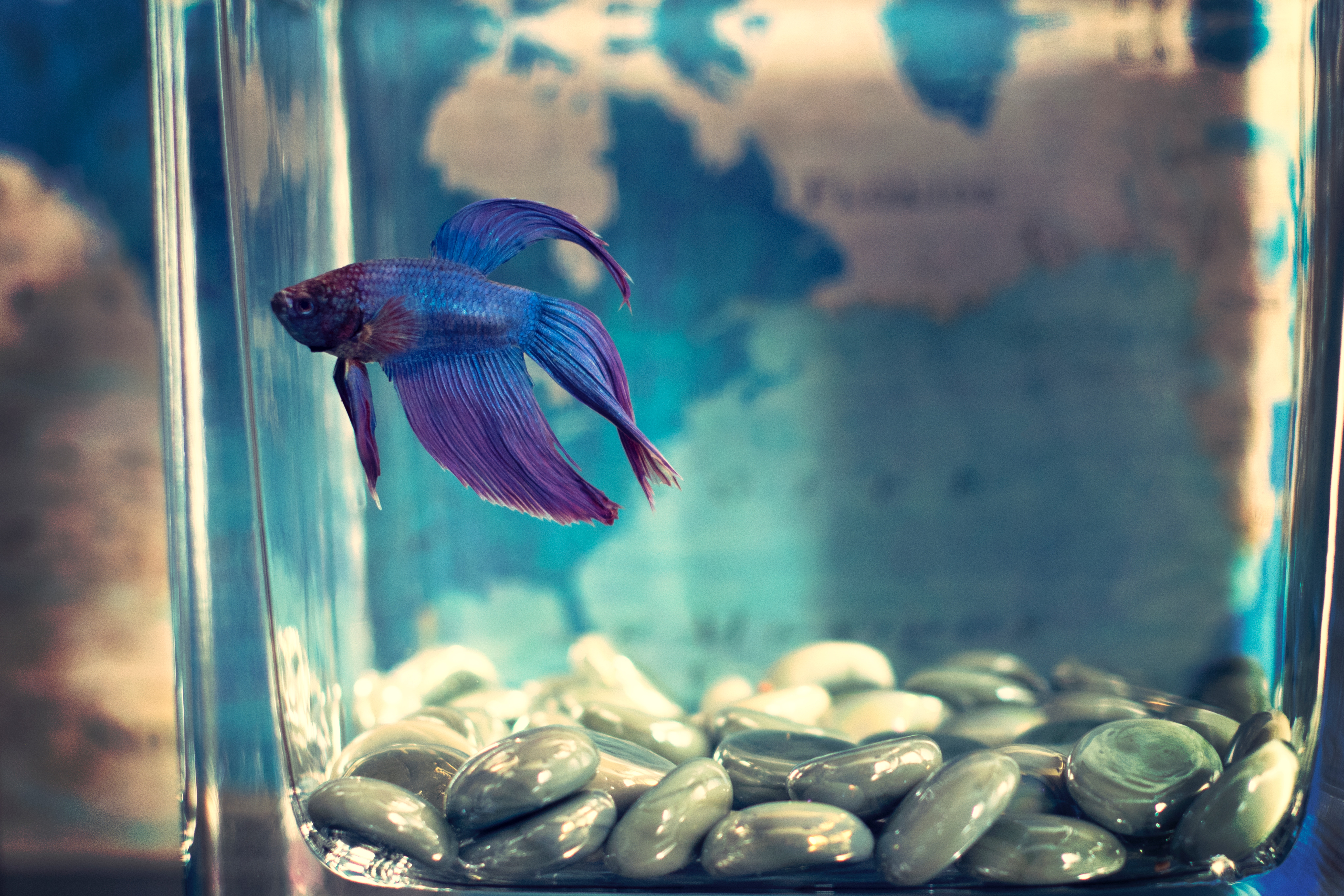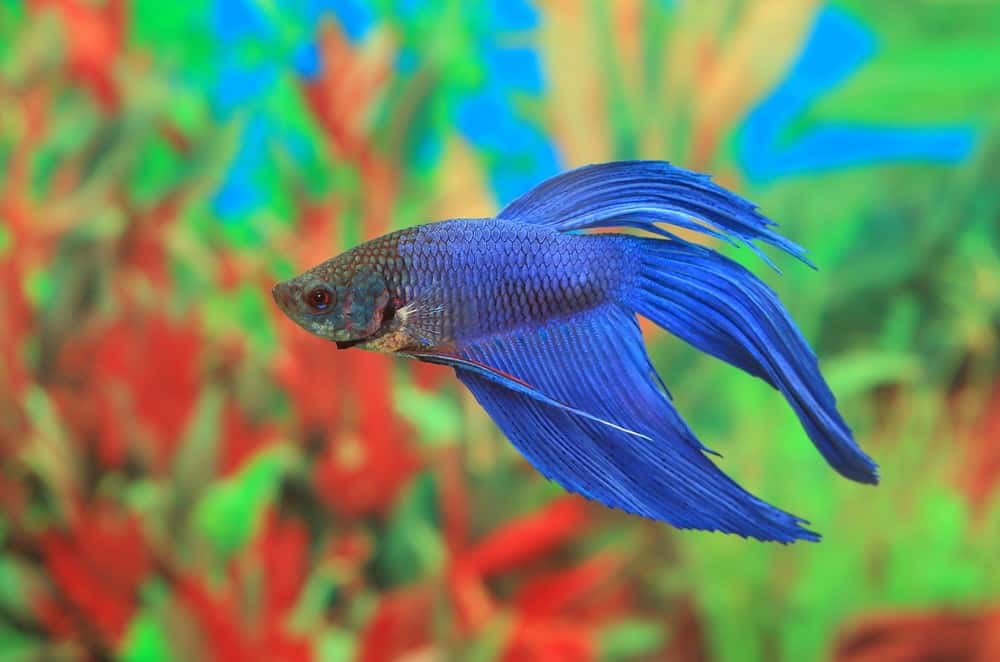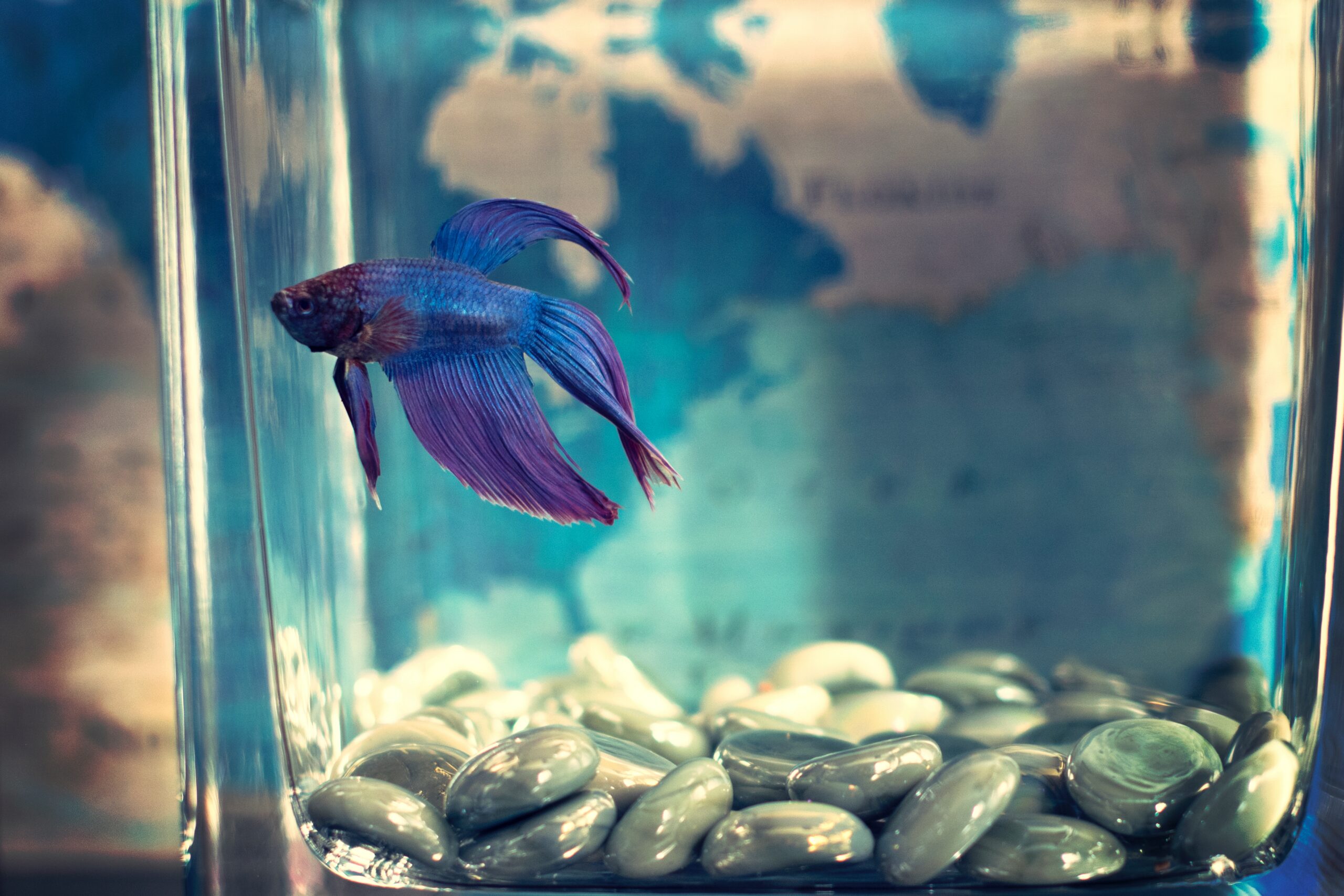Originally posted on May 18, 2023 @ 3:00 pm
Last Updated on 2 months by admin
Betta fish are fascinating creatures that have become increasingly popular as pets in recent years. These beautiful fish are known for their vibrant colors and unique personalities, and they can make wonderful additions to any home aquarium.
As a responsible pet owner, it’s important to understand the dietary needs of your betta fish. One common question that many betta owners have is how long their fish can go without food. In this article, we’ll explore this topic in depth and provide you with all the information you need to ensure the health and well-being of your beloved betta.
Betta fish can usually go up to 14 days without food. However, it is not recommended to leave them without food for more than 2-3 days, as it can have adverse effects on their health. Bettas are carnivores and need a varied diet of pellets, frozen or live foods. Overfeeding can lead to health problems, so it’s important to feed them in small portions, once or twice a day.

How Long Can Betta Fish Survive Without Food?
Betta fish are a popular choice for aquarium enthusiasts due to their striking colors, long flowing fins, and low maintenance requirements. However, one of the most common questions that fishkeepers ask is how long their betta fish can go without food. While bettas can survive for a short period without food, it is important to know how long they can go without sustenance to ensure their health and well-being.
Short-Term Survival
Betta fish can survive for up to two weeks without food if they are healthy and well-fed before fasting. However, this is not recommended as it can lead to malnutrition and other health problems. Betta fish are carnivorous and require a diet rich in protein, so it is important to feed them regularly to maintain their health.
If you plan on leaving your betta fish alone for a few days, it is recommended to use an automatic feeder to ensure they receive their daily dose of food. These feeders can be programmed to dispense food at specific times, ensuring that your fish are well-fed even when you are not around.
Long-Term Survival
While betta fish can survive for short periods without food, it is not recommended to leave them unfed for extended periods. Betta fish require a consistent and balanced diet to maintain their health and well-being. Without food, betta fish can suffer from malnutrition, weakened immune systems, and other health problems.
If you need to leave your betta fish alone for an extended period, it is recommended to find a fish-sitter or a pet-sitter who can take care of them in your absence. Alternatively, you can place your betta fish in a boarding facility that specializes in caring for fish.
Betta Fish Feeding Habits
Betta fish are known for their voracious appetites and can consume a significant amount of food in a single sitting. However, overfeeding your betta fish can lead to health problems such as bloating, constipation, and swim bladder disease.
It is recommended to feed your betta fish small amounts of food 2-3 times a day. Betta fish have small stomachs and can only consume a small amount of food at once. It is important to choose high-quality fish food that is specifically designed for betta fish to ensure they receive the proper nutrients.
The Benefits of Feeding Your Betta Fish Regularly
Feeding your betta fish regularly has numerous benefits, including:
1. Improved overall health and well-being
2. Increased energy levels and activity levels
3. Enhanced coloration and vibrancy
4. Stronger immune system and disease resistance
Regular feeding also helps to establish a bond between you and your betta fish. Betta fish are known for their unique personalities, and feeding them regularly can help to build trust and a relationship between you and your fish.
Feeding Betta Fish: Pellets vs. Live Food
When it comes to feeding betta fish, there are two main options: pellets and live food. Pellets are a convenient and affordable option that provides betta fish with the necessary nutrients. However, live food such as brine shrimp and bloodworms provide betta fish with a more varied diet and can help to stimulate their natural feeding behaviors.
While live food can be beneficial for betta fish, it is important to ensure that it is free from parasites and diseases. It is recommended to purchase live food from a reputable supplier to ensure its quality and safety.
Conclusion
In conclusion, betta fish can survive for short periods without food, but it is not recommended to leave them unfed for extended periods. Regular feeding is essential for maintaining the health and well-being of your betta fish, and it is important to choose high-quality fish food that is specifically designed for betta fish. By following these tips, you can ensure that your betta fish stay healthy and happy for years to come.
Frequently Asked Questions
Betta fish are a popular choice for aquarium enthusiasts due to their vibrant colors and unique personalities. One of the most common questions about betta fish is how long they can go without food. Here are the answers to five frequently asked questions about betta fish and their feeding habits.
How long can betta fish go without food?
Betta fish are capable of surviving for up to two weeks without food. However, this does not mean that they should be left without food for extended periods of time. A healthy betta fish should be fed a nutritious diet once or twice a day, with occasional fasting periods to prevent overfeeding. If you are planning to be away from home for longer than two weeks, it is important to arrange for someone to feed your betta fish or invest in an automatic feeder.
What happens if a betta fish doesn’t eat for too long?
If a betta fish goes too long without eating, it can lead to health problems such as malnutrition, weakened immune system, and even death. Betta fish require a balanced diet of protein and nutrients to maintain optimal health and vitality. If your betta fish refuses to eat, it could be a sign of illness or stress. It is important to monitor your betta fish’s eating habits and seek veterinary care if necessary.
Can betta fish eat once a day?
Betta fish can be fed once or twice a day, depending on their individual needs and activity levels. It is important to provide a balanced diet that includes a variety of protein sources, such as pellets, freeze-dried or live foods, and vegetables. Overfeeding can lead to health problems, such as constipation and bloating, so it is important to monitor your betta’s feeding habits and adjust accordingly.
How often should you fast a betta fish?
Fasting betta fish for one day per week is recommended to prevent overfeeding and promote digestive health. In the wild, betta fish may go without food for several days or even weeks, so occasional fasting is a natural part of their diet. However, it is important to provide your betta fish with a balanced diet and not fast them for extended periods of time, as this can lead to health issues.
What should you do if your betta fish stops eating?
If your betta fish stops eating, it could be a sign of illness or stress. It is important to monitor your betta fish’s behavior and look for other signs of health problems, such as lethargy or discoloration. You may need to adjust their diet or try offering different types of food. If your betta fish continues to refuse food, it is important to seek veterinary care to rule out any underlying health issues.

HOW LONG CAN BETTA FISH SURVIVE WITHOUT FOOD?
In conclusion, betta fish can survive for up to two weeks without food. However, it is not recommended to starve your fish for extended periods of time as it can lead to health issues and even death. It is essential to provide your betta fish with a balanced and nutritious diet to maintain their health and well-being.
If you are planning to be away from home for a few days, it is best to ask someone to feed your betta fish or invest in an automatic feeder. This will ensure that your fish does not go hungry and stays healthy.
Remember, as a pet owner, it is your responsibility to provide your betta fish with proper care and nutrition. By following a regular feeding schedule and providing a balanced diet, you can help your betta fish live a long and healthy life.

